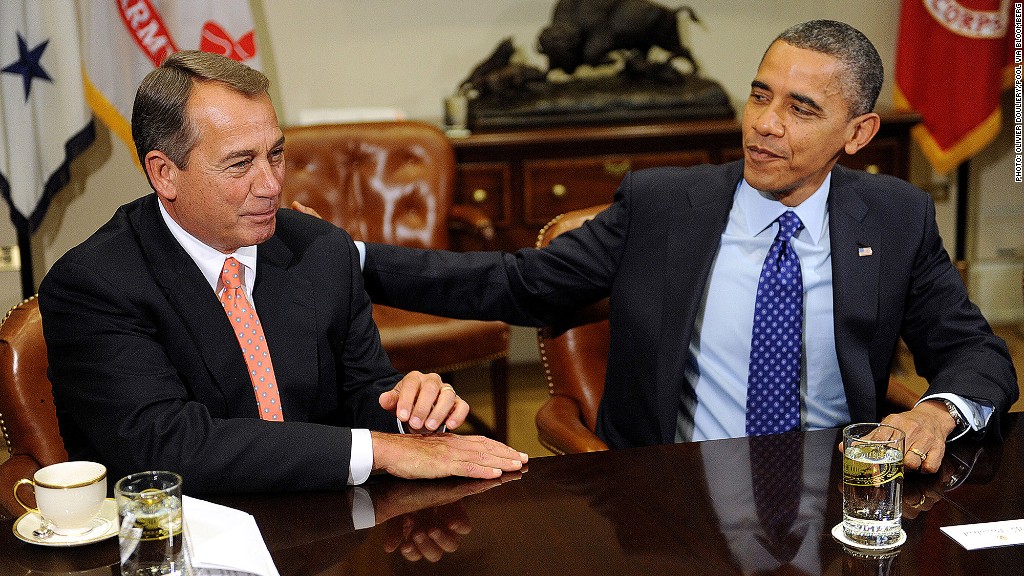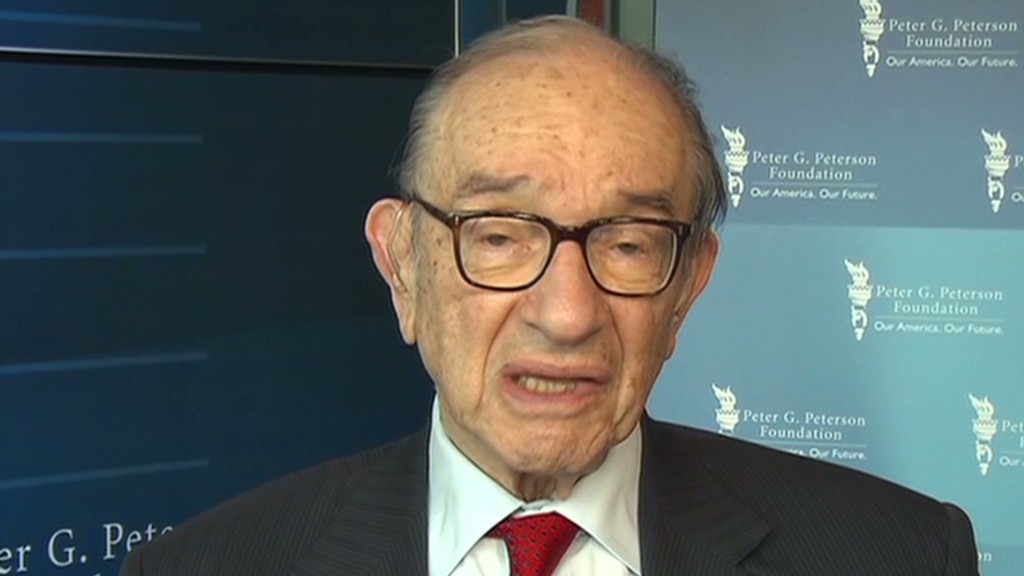
As the fiscal cliff nears, the question remains whether policy makers will meaningfully address the biggest drivers of the national debt: Medicare, Social Security and Medicaid.
Experts say it's unlikely they will ... at least not in the next few weeks. The two sides have vastly different views on health care, with Democrats looking to avoid benefit cuts and Republicans focused on limiting the federal government's liability.
The nation is staring into the fiscal cliff, which involves $7 trillion worth of spending cuts and tax increases over a decade. If no other action is taken, it will start to take effect in January, kicking off with $491 billion in deficit reduction in fiscal 2013, a large chunk of which will come from the expiration of the Bush tax cuts. Another $54 million in spending cuts are set to take place as a result of last year's debt-reduction deal.
Empowered by his re-election victory, Obama is centering the conversation on increasing taxes on the wealthy. House Republicans, who lost seats on November 6, have said they are willing to talk about raising revenue if it is accompanied by spending cuts and entitlement reform. House Speaker John Boehner called on Democrats Monday to come forward with proposals.
Related: Debt ceiling may collide with fiscal cliff
One main reason few in Washington are tackling entitlement reform is because it's tough, experts say.
Medicare and Social Security have long been the third rail of politics: No one wants to touch them since modifications often prompt angry outcries from voters, particularly the influential senior bloc.
"It is Medicare and Medicaid that are driving the spending side of the fiscal problem," said Steve Bell, economic policy director of the Bipartisan Policy Center. "The president has managed to make it a discussion about tax cuts on rich people."
Medicare, in particular, is a problem. The health insurance program for seniors is projected to eat up 3.7% of the economy in 2012 and 5.3% by 2030. By 2024, the portion of Medicare that funds hospital care will not be able to meet all its bills.
In his first term, Obama addressed the swift rise in Medicare costs by reducing $716 billion in payments to insurance companies participating in the Medicare Advantage program, hospitals, skilled nursing facilities and other providers. It also created an independent board charged with keeping costs under control if they exceed a preset cap. The law specifies that benefits cannot be cut to reduce expenses.

Boehner, meanwhile, pointed Monday to the House budget plan, crafted by Rep. Paul Ryan, who unsuccessfully ran for vice president this year. Ryan would open Medicare to competition in the private industry, giving seniors vouchers to pay their premiums.
The two sides are equally far apart when it comes to dealing with Medicaid, the health insurance program for the poor. Under Obama's Affordable Care Act, the program was expanded to include all adults with incomes of up to 133% of the poverty line. (The Supreme Court in June allowed states to opt into the expansion.) Ryan, on the other hand, wants to turn it into a block grant to limit the federal government's liability.
Resolving the nation's thorny health care problem isn't likely to happen by January, experts said. But the two parties should at least commit themselves to tackling the issue in the coming year, said Joseph Minarik, director of research at the Committee for Economic Development.
"What we need is a credible agreement between Democrats and Republicans to address health care in 2013," Minarik said. But "this is not the best environment for doing complicated things."


